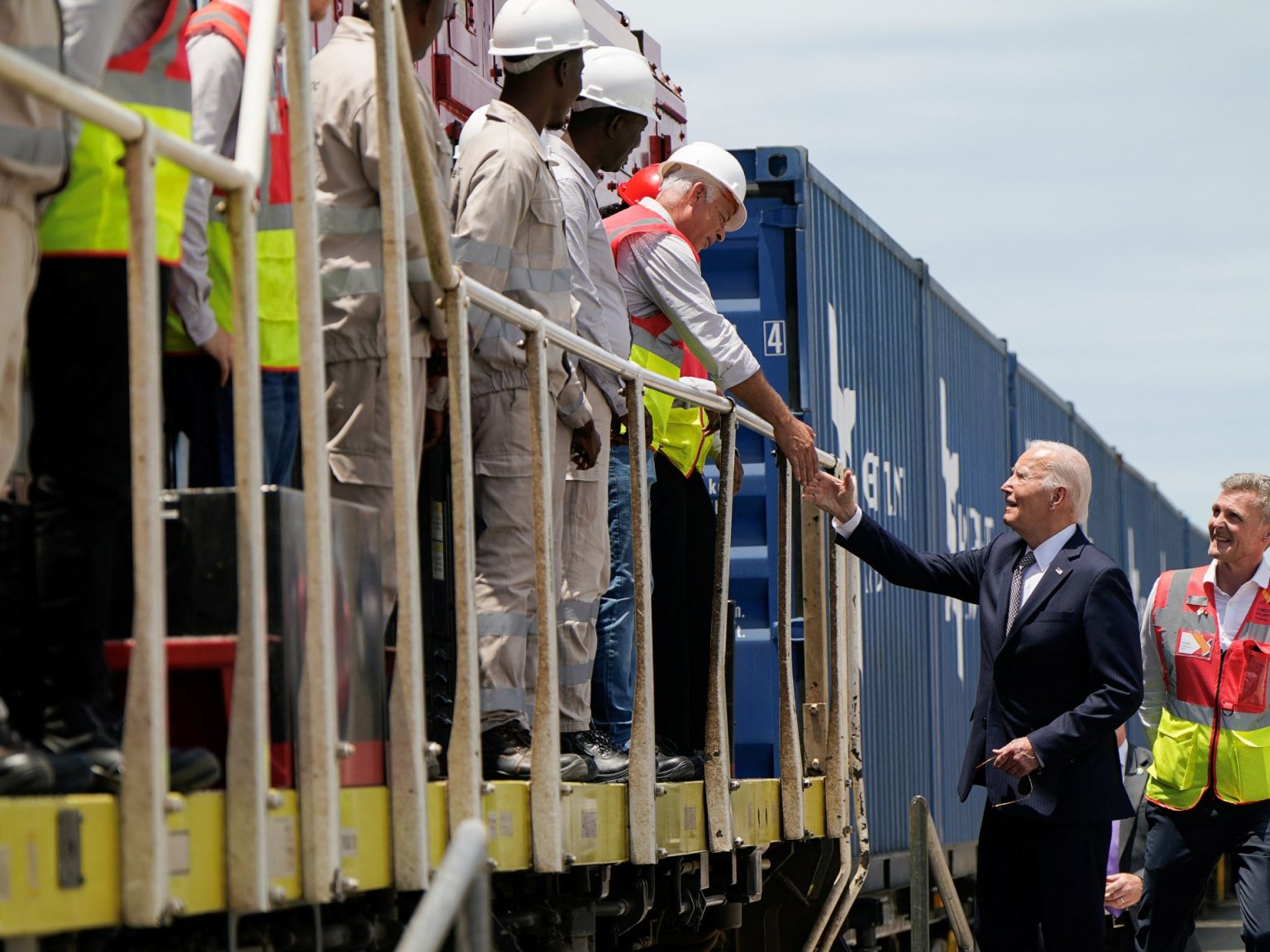President Joe Biden’s recent tour of the Angola railway project signifies a strategic effort to strengthen trade links between the United States and Africa, enhancing economic cooperation on the continent. The railway, an essential infrastructure initiative, is at the heart of Angola’s development strategy, aimed at facilitating the movement of goods and services across borders. By visiting this project, Biden highlighted the U.S. commitment to supporting African nations in their quest for economic growth and stability, reflecting a broader diplomatic approach focusing on partnership rather than mere aid.
The railway project is a crucial component of Angola’s broader economic vision, which endeavors to revive and expand the country’s transport infrastructure, thereby boosting regional trade. This initiative not only aims to improve connectivity within Angola but also establishes vital links with neighboring countries, promoting intra-African trade. Through improved logistics and transportation networks, Angola seeks to position itself as a logistics hub in Southern Africa, capable of serving regional markets more effectively.
Biden’s visit also underscores the U.S. intention to counter growing influence from other global powers in Africa, particularly China, which has invested heavily in infrastructure projects across the continent. By investing in and partnering with African nations, the U.S. aims to bolster its presence and assert its commitment to sustainable development and economic opportunity. This strategic move is indicative of a shifting paradigm in U.S. foreign policy towards Africa, emphasizing collaboration on economic issues and mutual benefits.
In his discussions during the tour, Biden engaged with Angolan officials to explore how the U.S. can further assist in leveraging such infrastructure projects to attract private sector investments. The emphasis on public-private partnerships is a vital aspect of the U.S. approach, which seeks to mobilize funding and expertise from American businesses to drive economic development in Africa. By doing so, the initiative not only benefits Angola but also opens new markets for U.S. companies looking to expand their operations abroad.
Furthermore, Biden’s visit was complemented by discussions on various other strategic areas, including climate change, health, and food security. These topics are critical as they align with the developmental challenges many African nations face. The U.S. has emphasized its commitment to addressing these issues through collaborative frameworks that also support the African Union’s agendas for development and integration. As climate impacts continue to threaten food systems and public health, partnerships focused on resilience and sustainability become more crucial.
In conclusion, President Biden’s tour of the Angola railway project is emblematic of a renewed U.S. focus on fostering strong economic partnerships with African nations. By supporting infrastructure efforts, the U.S. aims to facilitate trade, boost investment, and enhance regional connectivity, which ultimately contributes to poverty reduction and economic growth. This initiative not only reinforces the U.S.’s role in Africa’s development but also reflects a significant shift towards a shared vision for prosperity on the continent, highlighting the importance of collaboration and mutual benefits in international relations.

